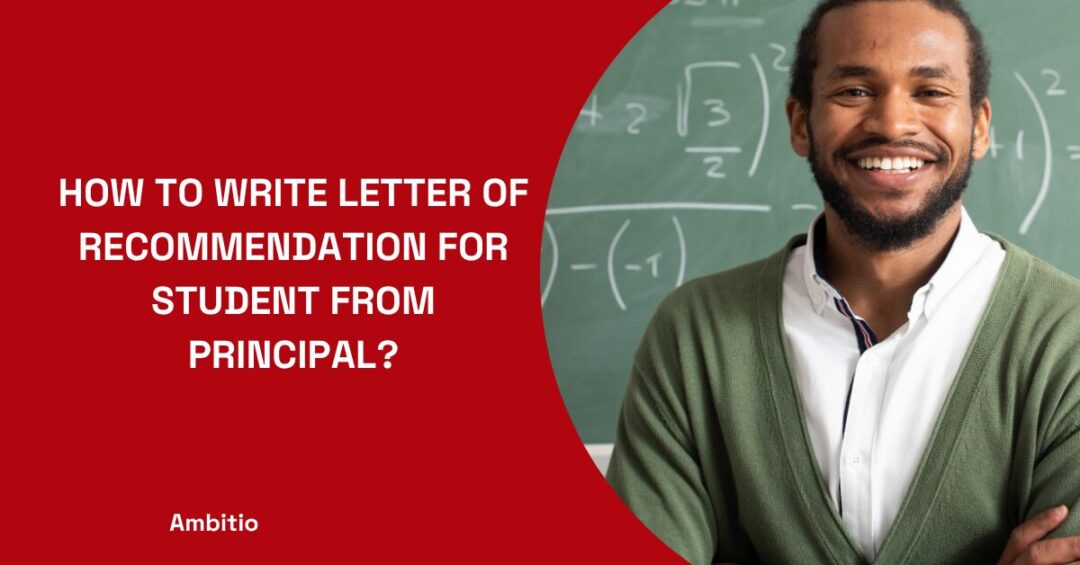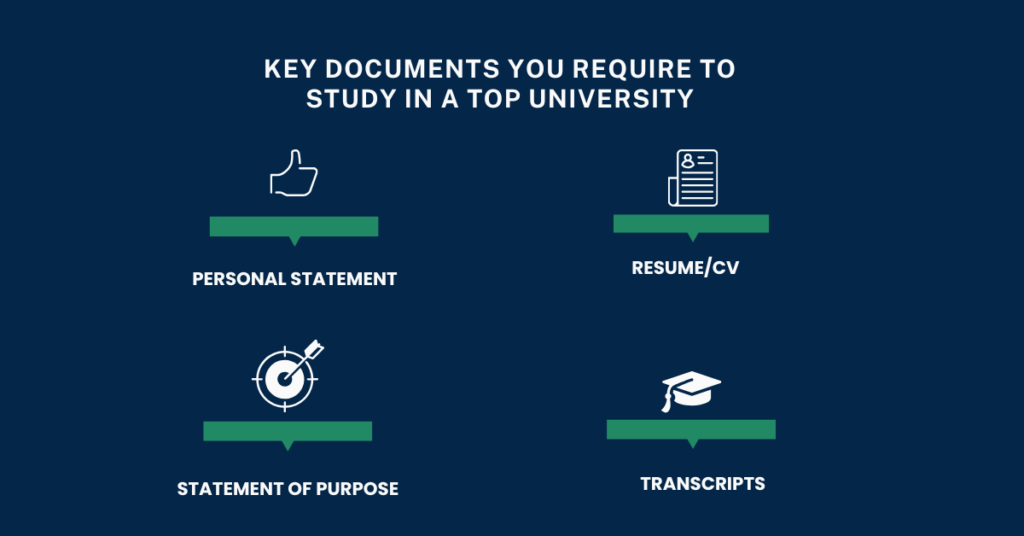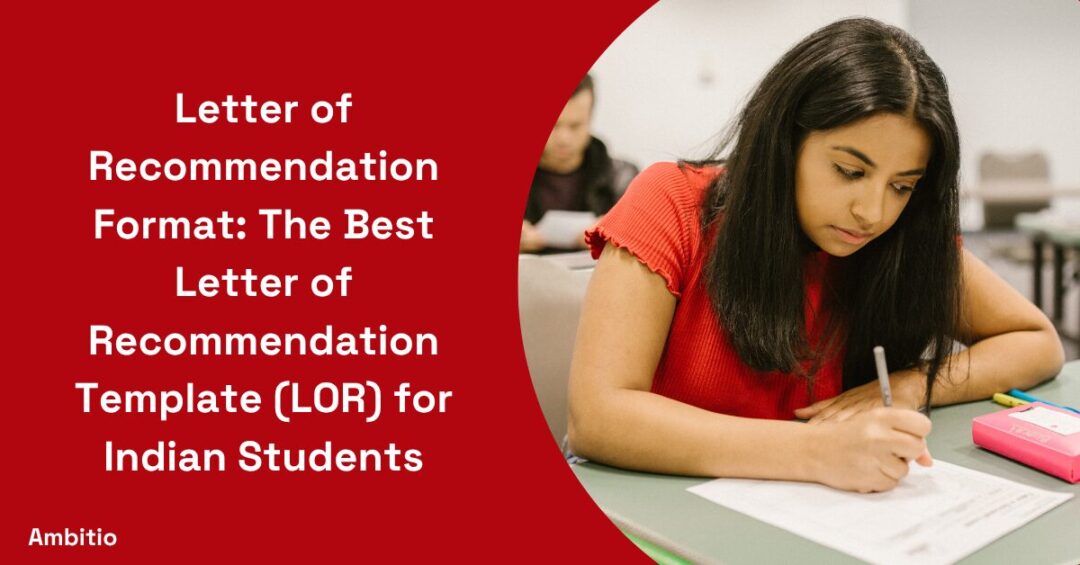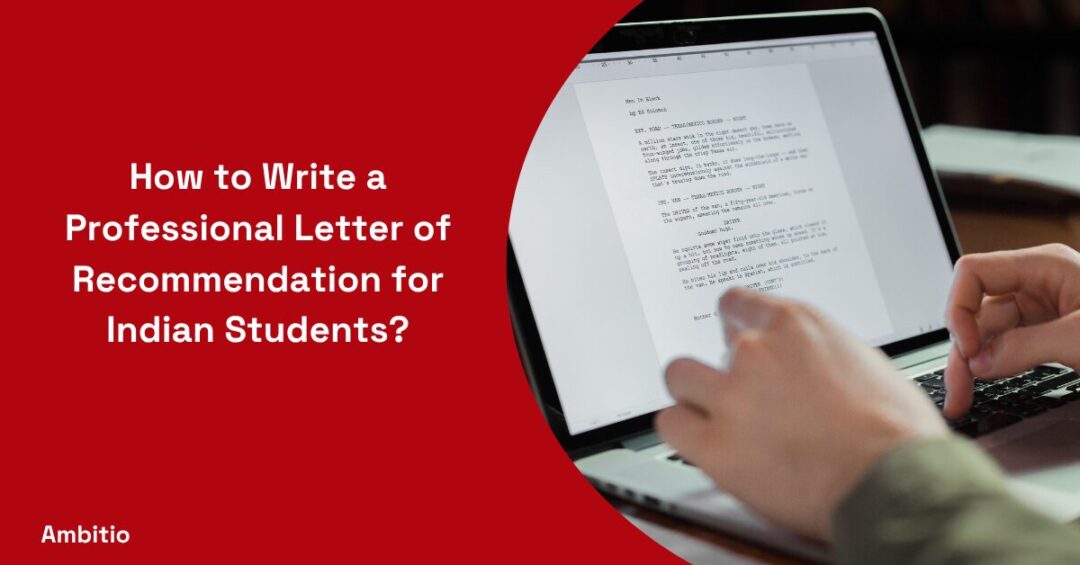6 July 2025
5 minutes read
How To Write Letter Of Recommendation For Student From Principal?

Key Takeaways
- Write a letter of recommendation for student from principal with clear intent, real examples, and no filler praise.
- Highlight academic grit, leadership, and teamwork using specific moments that show depth and character.
- End with a bold, confident endorsement that directly supports the student’s application and future potential.
Everyone wants a glowing letter of recommendation—until it’s the principal who has to write it. Between juggling school management and student requests, principals are often stuck writing last-minute reference letters that feel more like rushed reports than meaningful endorsements. The real struggle? Capturing a student’s academic potential, leadership qualities, and extracurricular grit in a way that sounds genuine—not robotic.
The good news? With a focused approach and a few solid reference points, crafting a standout letter of recommendation for student from principal doesn’t have to feel like a chore. Let’s cut the fluff and break down how to endorse your applicant with purpose, clarity, and impact.
What To Include In A Recommendation Letter?
You’re supposed to sum up an entire human being in a few paragraphs, drop all the right positive traits, sprinkle in some noble perseverance, and—of course—make them sound like the next Nobel Prize applicant. And if it’s for study abroad, you better pray the letter doesn’t read like a school newsletter.

Most principals and teachers end up repeating the same clichés: “hardworking,” “polite,” “did well academically.” That’s not an endorsement—that’s a polite shrug. You’re not just telling a story—you’re endorsing potential. And if you’re serious about writing a letter that gets results, these are the six things your letter absolutely must include:
1. A Strong Start That Shows You Actually Know the Student
Skip the “I’m pleased to write this letter” fluff. Start with how long you’ve known the applicant, in what context, and—most importantly—why you even remember them. Mention a defining moment or a specific instance that highlights their leadership qualities or work ethic. Colleges want evidence, not empty praise.
2. Proof of Academic Grit (Not Just Grades)
Saying someone performed “well academically” is not enough. Did they take on difficult subjects? Challenge themselves in independent projects? Show up after school to figure out one tough concept? Focus on moments that show perseverance, intellectual curiosity, and willingness to learn beyond the textbook.
3. Willingness to Learn From Failure
Here’s what most letters miss: the power of bouncing back. Every top college or program wants students who aren’t just smart but resilient. Share how the student faced a setback and how their willingness to grow stood out. That’s the kind of trait that separates good from great.
4. Real Examples of Leadership (Not Just Title-Holding)
Being president of a club doesn’t always mean they’ve got leadership qualities. Maybe they mentored juniors, handled a crisis during an event, or stood up for someone when it wasn’t popular. Give examples that actually endorse their ability to lead—not just manage.
5. Their Role in a Team: Not Everyone Has to Be the Captain
Top schools want students who know when to lead and when to be a helping hand. Talk about how the student thrives in teamwork—do they uplift others? Bridge conflicts? Take initiative without hogging the spotlight? These subtle skills speak volumes about their character.
6. Positive Traits That Show They’re Ready for the Next Level
Wrap it up with a bang. Highlight positive traits like discipline, emotional intelligence, initiative, or cultural sensitivity—especially if the applicant is aiming to study abroad. Admissions officers don’t just want brains—they want heart, soul, and people who make their campuses better.
5 Expert Tips To Write A Letter Of Recommendation For Student From Principal
most letters sound like they’ve been written under five minutes during a coffee break. No context. No specific examples of the student’s excellence. No insight into their school life. And somehow, no actual recommendation.
If you’re a school principal who truly wants to write a letter written with impact, here’s how you do it—with expertise, honesty, and just enough structure to impress even the most tired admissions committee.
1. Start With an Anecdote—Not a Template
Instead of jumping into a dry opening like “It gives me immense pleasure to recommend…”, start with a short anecdote that captures the essence of the student’s character. Think of a moment where they displayed critical thinking skills or analytical thinking—something that shows, not tells. This hooks the recipient’s name immediately and sets your letter apart from those run-of-the-mill letter of recommendation samples.
2. Clearly Explain the Relationship to the Student
The admissions committee cares deeply about your relationship to the student. How long have you known the student? In what context—was it through leadership roles, school life, or academic mentorship? Use this section to frame your evaluation of the student. Be specific: “As the school principal, I’ve observed student’s name lead the school council with maturity and clarity beyond their years.”
3. Provide Specific Examples That Highlight Strengths
It’s not enough to say the student’s application deserves consideration—you need to provide specific examples of the student’s abilities, whether it’s in academic achievements, problem-solving, or writing skills. Talk about how they represented our school in debates or their dedication and diligence in science projects. This is where you demonstrate their suitability for their chosen field of interest.
4. Focus on Suitability for University Life
Don’t just talk about school performance. Discuss how the student for university life stands out—mention their potential contributions to the academic community, how they collaborate, their leadership, and their positive and enthusiastic approach to challenges. This is what helps the referee connect the student’s high school profile to their potential for success in higher education. If the student has achieved great marks in exams like GRE, GMAT, TOEFL, IELTS or Duolingo, kindly mention.
5. Conclude With a Strong Endorsement That Seals the Deal
A lot of principals fade out by the end. Don’t. You must conclude with a strong endorsement that leaves no room for doubt. Use bold, affirmative language: “I firmly believe that student’s name is one of the best students I’ve had the privilege to guide and would be an asset to any university.” End with a formal salutation, and ensure the correct format is followed—because even the best content fails if it’s sloppily presented.
Conclusion
At the end of the day, writing a recommendation letter as a principal isn’t about sounding impressive—it’s about being honest, precise, and intentional. Avoid the noise. Avoid the fluff. Just focus on telling the truth about a student’s capabilities with clarity and care. Colleges aren’t looking for perfection; they’re looking for potential. So if you can help the admissions committee see what makes this student’s application genuinely worth a second look, your job’s done. Keep it sharp. Keep it real. And above all—make sure it sounds like you wrote it, not a recycled recommendation letter sample.
That’s where Ambitio comes in. From profile building to perfecting every application detail, we help you stand out where it counts. Ready to build a profile that speaks louder than grades? Join Ambitio Elite today. Let’s not just apply, let’s win admits together. Start your journey now!
FAQs
What are the basic academic requirements to study abroad?
You typically need to have completed your secondary education (12th grade) for undergraduate courses, with required grades varying by country and university. For postgraduate courses, a relevant bachelor’s degree is required
Do I need to prove language proficiency?
Yes, if you are studying in a country where the course language is not your native language, you must provide proof of proficiency through tests like IELTS or TOEFL for English
What documents are needed for the application?
Common documents include academic transcripts, proof of language proficiency, letters of recommendation, statement of purpose, and passport copies
Do I need a student visa?
Yes, for long-term study abroad programs, a student visa is required. Short exchanges may only need a tourist visa. Visa requirements vary by country
Can I work while studying abroad?
Most countries allow students to work part-time (usually up to 20 hours per week) during term time and full-time during holidays, but you must check specific country rules

You can study at top universities worldwide!
Get expert tips and tricks to get into top universities with a free expert session.
Book Your Free 30-Minute Session Now! Book a call now




























